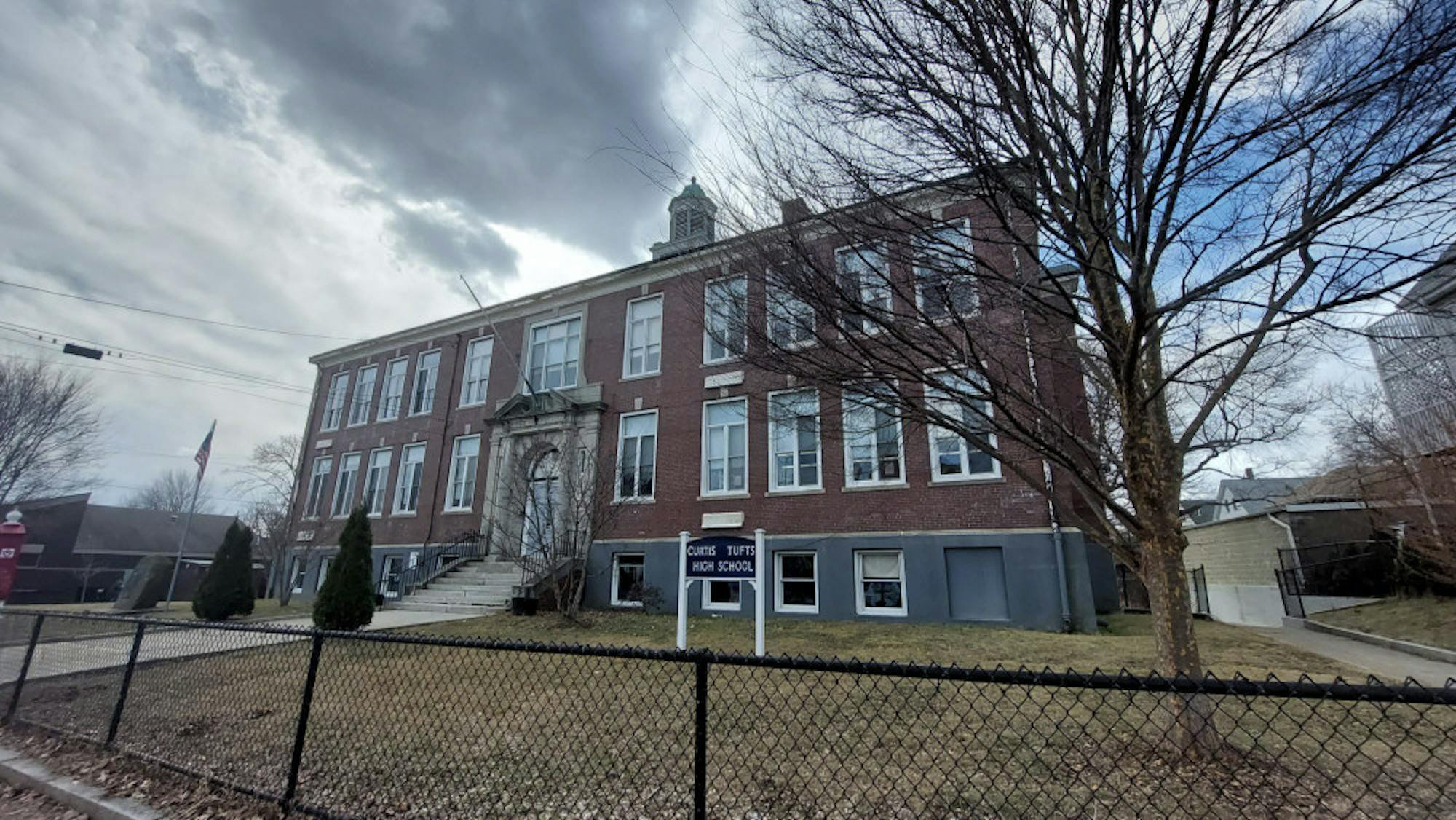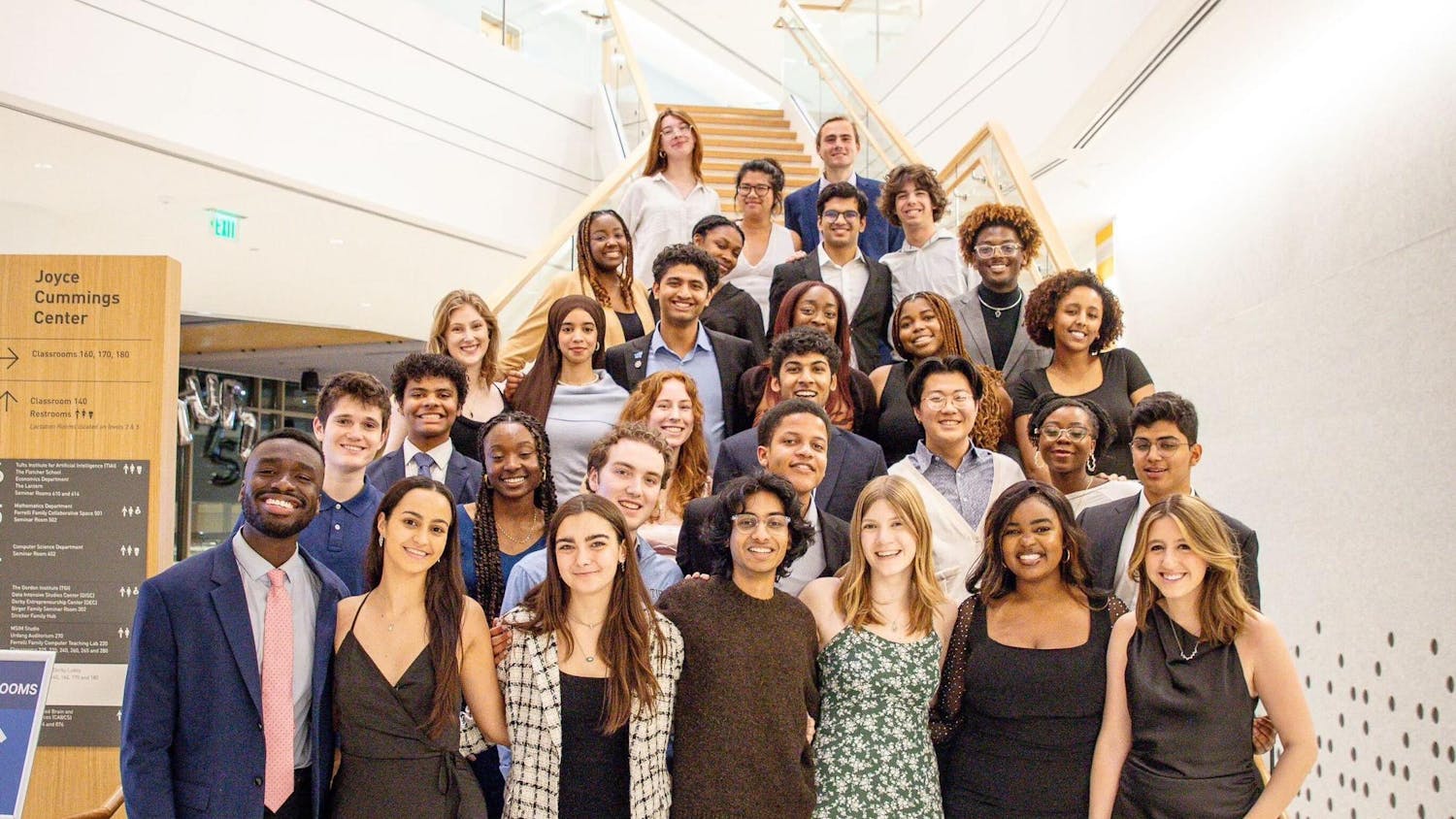The Medford Public School District was recently awarded a competitive Hate Crime Prevention Grant by the State of Massachusetts. Medford Public Schools plans to use the $50,000 award, the maximum amount of funding available under the grant, to integrate restorative justice practices into the classroom.
According to Dr. Peter Cushing, assistant superintendent of Medford Public Schools, there have been a number of past cases in Medford schools that have raised concerns about the social and emotional health of students. In December, students staged a walkout at Medford High School in response to incidents of violence, and later that month, a “hate symbol” was found in the bathroom of another school in the district.
“Students had some real, valid concerns around a student-on-student incident that happened in school, and what that led to was us having conversations with students around how they feel their school is operating,” Cushing said. “Some of the comments students made … really raised my level of concern as a former principal, and I really felt that it was incumbent on us when this opportunity came forward to really try to get our students in a better place.”
The grant will be divided and directed toward a number of initiatives that aim to reduce instances of hate crime and create a more positive environment for members of the educational communities. Of the grant, $15,000 will go toward funding a student survey to gauge the social and cultural climate of Medford schools.
“Finding out what students need is really important for our culture in schools,” Director of School Counseling and Behavioral Health Stacey Schulman said. “Creating that open communication around events is vital because that’s what we need to create a positive community.”
Part of the grant will also go toward expanding the restorative justice pilot initiative that was previously implemented at Andrews Middle School in Medford. Medford Public Schools is partnering with groups like Pathways to Restorative Communities to bring restorative practices into their classrooms.
Candace Julyan, a partner at Pathways to Restorative Communities (P2RC), spoke to the Daily about how restorative practices work to mediate conflict in a more constructive and less accusatory way.
“In a criminal justice or rule-based system, … the questions that are important to people [are], ‘Who did it?’ and, ‘What are the consequences?’” Julyan said. “In a restorative conversation, they’re just totally different questions. The questions there [are], ‘Who’s been harmed? What do they need? And whose responsibility is it to repair that harm?’”
The restorative method of conflict resolution focuses on three levels of intervention in order to respond to incidents of varying severity. The most basic are community building circles, which, according to the P2RC toolkit, develop “social and emotional capacity, build relationships, and improve school climate.”
“Community building circles [are] where you start to create a school culture where people really have relationships with one another,” said Julyan. “I think the whole idea of restorative practices … is [that] it’s a way to turn a mistake into a learning opportunity instead of a punishment.”
By integrating restorative practices into the classroom, Julyan believes that repeated incidents of conflict can be avoided, and students that might otherwise get caught up in cycles of offense and punishment can grow from these instances.
“Often, there are students who are seen in the office over and over again,” Julyan said. “Restorative conferences really reduce that issue because kids really learn, and so rather than just being punished and going home … they have an opportunity to really think about what they did. Instead of being punished, [they can] figure out how to fix whatever happened, and then they can use that the next time.”
Medford elementary schools have already incorporated ‘Responsive Classroom’ approaches, a method that aims to create inclusive and engaging classrooms for all students. Beyond the Hate Crime Prevention Grant, Cushing hopes to expand the Responsive Classroom method to middle schools.
“Students are going to come to [middle school teachers] fully trained, and if they’re coming with a language and a framework through [the] Responsive Classroom [method], then educators at the secondary level … need to have that knowledge and understanding so that they can best work with the students,” Cushing said.
A portion of the grant will go to providing training for teachers and administrators so they are familiar with the restorative practice approach.
With assistance from the grant, Cushing believes that incorporating these restorative practices and managing student concerns on an intimate level will prepare students for social, political and cultural experiences beyond the classroom.
“Hopefully through these trainings, through this work with our students, and through … understanding how your behavior impacts other people and then [through] trying to restore the relationship that was otherwise damaged, we’re going to be able to head off some of these things that have plagued other districts and create a better citizen of the United States and a better citizen of the world,” Cushing said.






